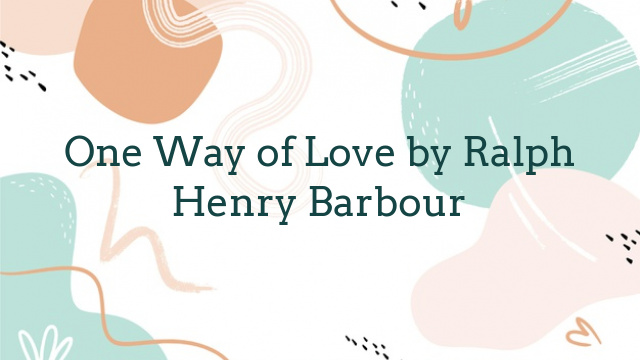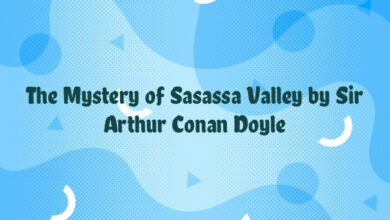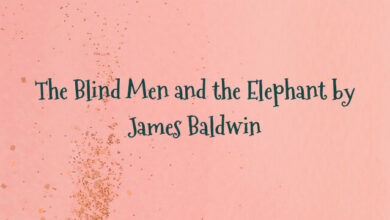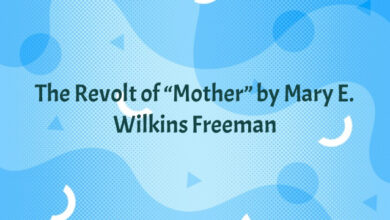
One Way of Love by Ralph Henry Barbour
You don’t believe in coincidences, which is only another way of saying that all things work together for good to them that love God–or them that don’t, for that matter, if they are honestly trying to do what they think right. Now I do.
I had as good a time as most young fellows when I was young. My father farmed a bit of land down Malling way, and I walked out with the prettiest girl in our parts. Jenny was her name, Jenny Teesdale; her people come from the North. Pretty as a pink Jenny was, and neat in her ways, and would make me a good wife, every one said, even my own mother; and when a man’s mother owns that about a girl he may know he’s got hold of a treasure. Now Jenny–her name was Jane, but we called her Jenny for short–she had a cousin Amelia, who was apprenticed to the millinery and dress-making in Maidstone; the two had been brought up together from little things, and they was that fond of each other it was a pleasure to see them together. I was fond of Amelia, too, like as a brother might be; and when Jenny and me walked out of a Sunday, as often as not Amelia would come with us, and all went on happy enough for a while. Then I began to notice Jenny didn’t seem to care so much about walking out, and one Sunday afternoon she said she had a headache and would rather stay at home by the fire; for it was early spring, and the days chilly. Amelia and me took a turn by ourselves, and when we got back to Teesdale’s farm, there was Jenny, wonderfully brisked up, talking and laughing away with young Wheeler, whose father keeps the post-office. I was not best pleased, I can tell you, but I kept a still tongue in my head; only, as time went on, I couldn’t help seeing Jenny didn’t seem to be at all the same to me, and Amelia seemed sad, too.
I was in the hairdressing then, and serving my time, so it was only on Sundays or an evening that I could get out. But at last I said to myself, ‘This can’t go on; us three that used to be so jolly, we’re as flat as half a pint of four ale; and I’ll know the reason why,’ says I, ‘before I’m twenty-four hours older.’ So I went to Teesdale’s with that clear fixed in my head.
Jenny was not in the house, but Amelia was. The old folks had gone to a Magic Lantern in the schoolroom, and Amelia was alone in the house.
‘I’ll have it out with her,’ thinks I; so as soon as we had passed the time of day and asked after each other’s relations, I says, ‘Look here, Amelia, what is it that’s making mischief between you and me and Jenny, as used to be so jolly along of each other?’
She went red, and she went white and red again.
‘Don’t ‘e ask me, Tom–don’t ‘e now, there’s a good fellow.’
And, of course, I asked her all the more.
Then says she, ‘Jenny’ll never forgive me if I tell you.’
‘Jenny shan’t never know,’ says I; and I swore it, too.
Then says Amelia, ‘I can’t abear to tell you, Tom, for I know it will break your ‘eart. But
Jenny, she don’t care for you no more; it’s Joe Wheeler as she fancies now, and she’s out with him this very minute, as here we stand.
‘I’ll wring her neck for her,’ says I. Then when I had taken time to think a bit, ‘I can’t believe this, Amelia,’ says I, ‘not even from you. I must ask Jenny.’
‘But that’s just what you’ve swore not to do,’ says she. ‘She’ll never forgive me if you do, Tom; and what need of asking when for the trouble of walking the length of the road you can see them together? But if I tell you where to find them, you swear you won’t speak or make a fuss, because she’d know I’d told you?’
‘I swear I won’t,’ says I.
‘Well, then,’ says Amelia, ‘I don’t seem to be acting fair to her; but, take it the other way, I can’t abear to stand by and see you deceived, Tom. If you go by the churchyard an hour from now, you’ll see them in the porch; but don’t you say a word to them, and never say I told you. Now, be off, Tom,’ says she.
It was early summer by this time, and the evenings long. I don’t think any man need envy me what I felt as I walked about the lanes waiting till it was time to walk up to the church and find out for certain that I’d been made a fool of.
It was dusk when I opened the churchyard gate and walked up the path.
There she was, sure enough, in her Sunday muslin with the violet sprig, and her black silk jacket with the bugles, and her arm was round Joe Wheeler’s neck–confound him!–and his arms were round her waist, both of them. They didn’t see me, and I stood for a minute and looked at them, and but for what I’d swore to Amelia I believe I should have taken Wheeler by the throat and shaken the life out of him then and there. But I had swore, and I turned sharp and walked away, and I never went up to Teesdale’s nor to my father’s farm, but I went straight back to Pound’s, the man I was bound to, and I wrote a letter to Jenny and one to Amelia, and in Amelia’s I only said–
‘DEAR AMELIA,–Thank you very much; you were quite right.
TOM.’
And in the other I said–
Jenny, I’ve had pretty well enough of you; you can go to the devil your own way. So no more at present from your sincere well-wisher TOM.
‘P.S.–I’m going for a soldier.’
And I left everything: my master that I was bound to, and my trade and my father. And I went straight off to London. And I should have been a soldier right enough but that I fell in with a fireman, and he persuaded me to go in for that business, which is just as exciting as a soldier’s, and a great deal more dangerous, most times. And a fireman I was for six or eight years, but I never cared to walk out with another girl when I thought of Jenny. I didn’t tell my folks where I’d gone, and for years I heard nothing from them.
And one night there was a fire in a street off the Borough–a high house it was,–and I went up the ladder to a window where there was a woman screaming, and directly I see her face I see it was Jenny.
I fetched her down the ladder right enough, and she clung round my neck (she didn’t know me from Adam), and said: ‘Oh, go back and fetch my husband.’ And I knew it was Wheeler I’d got to go and find.
Then I went back and I looked for Wheeler.
There he was, lying on the bed, drunk.
Then the devil says to me, ‘What call have you to go and find him, the drunken swine? Leave him be, and you can marry Jenny, and let bygones be bygones’; and I stood there half a minute, quite still, with the smoke getting thick round me. Then, the next thing I knew, there was a cracking under my feet and the boards giving way, and I sprang across to Wheeler all in a minute, as anxious to save him as if he’d been my own twin brother. There was no waking him, it was lift him or leave him, and somehow or other I got him out; but that minute I’d given to listening to Satan had very nearly chucked us both to our death, and we only just come off by the skin of our teeth. The crowd cheered like mad when I dragged him out.
I was burned awfully bad, and such good looks as I’d had burnt off me, and I didn’t know nothing plainly for many a long day.
And when I come to myself I was in a hospital, and there was a sweet-faced charity sister sitting looking at me, and, by the Lord, if it wasn’t Amelia! And she fell on her knees beside me, and she says, ‘Tom, I must tell you.
Ever since I found religion I’ve known what a wicked girl I was. O Tom, to see you lying there, so ill! O Tom, forgive me, or I shall go mad, I know I shall!’
And, with that, she told me straight out, holding nothing back, that what she’d said to me that night eight years ago was a lie, no better; and that who I’d seen in the church porch with young Wheeler was not Jenny at all, but Amelia herself, dressed in Jenny’s things.
‘Oh, forgive me, Tom!’ says Amelia, the tears runnin’ over her nun’s dress. ‘Forgive me, Tom, for I can never forgive myself! I knew Jenny didn’t rightly care about you, Tom, and I loved you so dear. And Wheeler wanted Jenny, and so I was tempted to play off that trick on you; I thought you would come round to me after.’
I was weak still with my illness, but I put my hand on hers, and I says, ‘I do forgive you, Amelia, for, after all, you done it for love of me. And are you a nun, my dear?’ says I.
‘No,’ says she, ‘I’m only on liking as it were; if I don’t like them or they don’t like me, I can leave any minute.’
‘Then leave, for God’s sake,’ says I, ‘if you’ve got a bit of love for me left. Let bygones be bygones, and marry me as soon as I come out of this, for it’s worth something to be loved as you’ve loved me, Amelia, and I was always fond of you.’
‘What?’ says she. ‘Me marry you, and be happy after all the harm I’ve done? You run away from your articles and turned fireman, and Jenny married to a drunken brute–no, Tom, no! I don’t deserve to be happy; but, if you forgive me, I shan’t be as miserable as I was.’
‘Well,’ says I, ‘if ever you think better of it let me know.’
And the curious thing is that, within two years, she did think better of it–for why? That fire had sobered Wheeler more than twenty thousand temperance tracts, and all the Sons of the Phoenix and Bands of Hope rolled into one. He never touched a drop of drink since that day, and Jenny’s as happy as her kind ever is. I hear she didn’t fret over me more than a month, though perhaps that’s only what I deserved, writing to her as I did. And then Amelia she said–‘No such harm done then after all.’ So she married me.
Now, you see, if I’d listened to Satan and hadn’t pulled Wheeler out, I shouldn’t have got burned, and I shouldn’t have got into the hospital, and I shouldn’t have found Amelia again, and then where should I have been? Whereas now, we’re farming the same bit of land that my father farmed before us. And if this was a made-up story, Amelia would have had to drowned herself or something, and I should have gone a-weeping and a-wailing for Jenny all my born days; but as it’s true and really happened, Amelia and me have been punished enough, I think; for eight years of unhappiness is only a few words of print in a story-book, but when you’ve got to live them, every day of them, eight years is eight years, as Amelia and I shall remember till our dying day; and eight years unhappiness is enough punishment for most of the wrong things a man can do, or a woman either for that matter.




